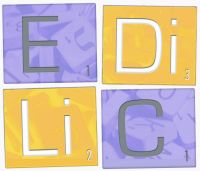Speakers
Description
In French departments in the United States, many postsecondary institutions still adopt a largely monolingual, franco-normative model, where the mythical notion of the native idealized speaker dominates. Although commercial textbooks promote francophonie and frame French as a world language, they do so without ever questioning language ideologies or power dynamics. Plurilingual, pluricultural identities are often reified and rarely constitute a site for critical examination.
This presentation will describe a pilot project which seeks to foster critical awareness of language in its social and political dimensions, by combining community-engagement, sociolinguistic questioning and systematic reflection and co-construction of knowledge.
Offered as an advanced level university French course, the pedagogical scenario gives students an opportunity to collaborate with two institutional partners that cater for the needs of newly arrived young migrants in New York City. The majority of the young people involved are from West Africa or Haiti and present a range of proficiencies in English, French and other languages (Smith, 2017).
Students engage in peer collaborations that blend discussions of language biographies and resettlement issues, reflective workshops on multilingualism and identity, peer-to-peer mentoring on pathways to navigate the American educational system, language tutoring, collaborative tasks in biliteracy projects as well as assistance with preparation of dossiers for asylum seekers.
As recommended in approaches informed by critical pedagogies, systematic reflection is required using the DEAL model (Ash & Clayton, 2009). Data still needs to be collected and analyzed systematically, but initial comments seem to indicate the mutual benefits of the initiative and its potential transformative and empowering impact, as participants deconstruct some of the ideological beliefs about language and develop a heightened understanding of multilingual repertoires and practices (such as translanguaging), gaining new critical insights into the complex relationship between language, power and identity and the ways in which these intersect.
Content/contenu/Inhalt 2
Dans les départements de français aux États-Unis, de nombreux programmes universitaires adoptent encore un modèle largement monolingue et franco-normatif, où la notion mythique du locuteur natif idéalisé domine. Bien que les manuels commerciaux promeuvent la francophonie et présentent le français comme une langue mondiale, ils ne remettent jamais en question les idéologies linguistiques ou les dynamiques de pouvoir. Les identités plurilingues et pluriculturelles sont souvent réifiées et constituent rarement un objet d'examen critique.
Cette présentation décrira un projet pilote visant à favoriser une prise de conscience critique de la langue dans ses dimensions sociales et politiques, en combinant engagement communautaire, questionnement sociolinguistique, réflexion systématique et co-construction des connaissances.
Proposé comme un cours de français avancé, le scénario pédagogique offre aux étudiants l’opportunité de collaborer avec deux associations répondant aux besoins de jeunes migrants récemment arrivés à New York, pour la plupart en provenance d'Afrique de l'Ouest ou d'Haïti, et aux compétences variées en anglais, en français et dans d'autres langues (Smith, 2017).
Les étudiants collaborent entre pairs et participent à des discussions sur les biographies linguistiques et les questions de migration, des ateliers réflexifs sur le multilinguisme et l’identité, des échanges sur le système éducatif américain, du tutorat linguistique, des projets de bilittératie, ainsi qu’à la préparation de dossiers de demandes d'asile.
En s’appuyant sur les approches des pédagogies critiques, une réflexion systématique basée sur le modèle DEAL (Ash & Clayton, 2009) est requise. Les données doivent encore être collectées et analysées de manière systématique, mais les commentaires initiaux semblent indiquer les bénéfices mutuels de l'initiative et son potentiel impact transformateur et émancipateur. Les participants déconstruisent certaines croyances idéologiques sur les langues, améliorent leur compréhension des répertoires et pratiques multilingues (comme le translanguaging) et acquièrent de nouvelles perspectives critiques sur les relations et intersections entre langues, pouvoir et identité.
References
Ash, S. & Clayton P. (2009). Generating, deepening and documenting learning: the power of critical reflection in applied learning. Journal of Applied Learning in Higher Education 1, 25-48.
Smith, M. A. (2017). French Heritage Language Learning: A site of multilingual identity formation, cultural exploration, and creative expression in New York City. Critical Multilingualism Studies 5:(2), 10–38.
| Only for symposia / Seulement pour symposiums / Nur für Symposien | Plurilingual literacies, community engagement, and critical language awareness |
|---|---|
| Title/ titre/Titel 2 | Le français au-delà de la salle de classe: une approche critique |

